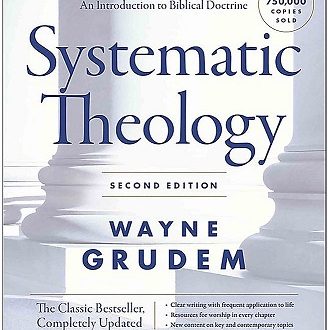 I’ve been working on a book review of Seyoon Kim’s Christ and Caesar: The Gospel and the Roman Empire in the Writings of Paul and Luke. In this book, Kim is arguing against the likes of N. T. Wright who contend that Paul includes coded political messages in his letters in order to subvert the Roman Empire.
I’ve been working on a book review of Seyoon Kim’s Christ and Caesar: The Gospel and the Roman Empire in the Writings of Paul and Luke. In this book, Kim is arguing against the likes of N. T. Wright who contend that Paul includes coded political messages in his letters in order to subvert the Roman Empire.
In reading through Kim’s work, I am struck by how similar his critiques are to the ones that I made in a recent article for JETS. We raise some of the same methodological questions, but our work is entirely independent of one another.
As I was reading last night, I found one paragraph to be particularly devastating. In it, Kim accuses counter-imperial interpreters of proof-texting:
“This [anti-imperial approach] looks like a new application of the old-fashioned proof-text method that dogmatists employed to construct doctrines, and dispensationalists used to construct elaborate eschatological scenarios. It is rather curious to see how some sophisticated exegetes as well as those who have an avowed interest in so-called postcolonial hermeneutics use the method for their political interpretation, although they would loudly disapprove its use by dogmatists and dispensationalists” (p. 36).
In some circles, being called a dogmatist or a dispensationalist is the worst kind of insult. I don’t think that Kim intends to be insulting, but I do think he uses strong language to show just how flawed this method of interpretation truly is. Kim goes on to criticize the notion of “coded” messages in Paul’s letters (a device that N. T. Wright is particularly fond of):
“This is a rather desperate attempt to obtain anti-imperial messages where there are none. Inevitably this method involves self-contradiction . . . Thus, the anti-imperial interpreters’ appeal to the device of coding amounts to an inadvertent admission of the failure of their whole interpretive scheme” (pp. 36-37).
I think Kim is right, and I am looking forward to the day when such faddish and unhelpful interpretations of Paul go the way of the Dodo. With critiques like this one mounting, that day may not be very far away.




19 Comments
Andrew
Dr. Burk,
Out of curiosity, are you opposed to an anti-Imperial hermeneutic OR, do you believe that the likes of Claiborne, Wright, Bell, etc are over-using and extrapolating this hermeneutic where it doesn’t necessarily correspond?
Thanks,
Andrew
Denny Burk
I believe the whole methodology of counter-imperial interpreters is flawed. Anyone who bases their interpretation of Paul on counter-imperial assumptions is reading things into the text that aren’t there.
Don Johnson
I have not read either book.
The Jews had to pay a tax to get the exemption from having to worship Caesar. The early believers were rejected by Jews as being Jewish by about 90 with Jamnia. Since they were declared not Jewish, they could not pay the Jewish tax and were an illegal religion.
Augustus was voted to be a “god” when he died, as were later Caesars and Domitian was voted to be a “god” while he lived. This made it very dangerous for groups that claimed there was ONE God, especially illegal sects like the Way. Believers did not suffer persecution because they were seen as bewilderingly strange (altho they were, as it makes no sense at all to a pagan Roman to worship someone crucified), they suffered persecution as they were seen as a threat to the Roman empire and the emperor. There was no separation of church and state.
We know what eventually happened with Constantine, but that does not change what happened before.
Jesus and Paul and the 12 turned the world upside down and part of that world was the Roman empire. However, they turned it upside down from the inside out, one person at a time.
Chuck
“In some circles, being called a dogmatist or a dispensationalist is the worst kind of insult.”
Very sad, but undoubtedly true. This diminishing of dispensational theologians, many of whom are first-rate exegetes and avoid the excesses of some of the more popular proponents of the system, is unnecessary to the argument and does not serve the interests of the Body of Christ.
Daniel
Should we make a distinction between anti-Empire readings in the NT and anti-Imperial Cult readings?
What is an example of a common prooftext used by Anti-Imperial interpreters?
I cannot help but think that some of the language of the Imperial Cult has been co-opted in books like 1 and 2 Thessalonians and Revelation.
Peter G.
Denny,
Thanks for posting this. I just finished reading Colossians Remixed: Subverting the Empire
by Brian Walsh and Sylvia Keesmaat, a book that makes heavy use of this anti-imperialist understanding of Paul. I really had never heard about it until I noticed your article in JETS. But then when I read Colossians Remixed I saw just how prominent this notion has become. The authors made a direct connection between Paul’s Rome and the United States. I kept thinking as I read their book, “How does all this supposed anti-imperialism fit with Romans 13?”
Do you deal with their book at all in your article? Or does Kim?
Denny Burk
Peter,
I do interact a little bit with “Colossians Remixed,” but not much. After I began reading that book, I realized that their work is derivative of scholars like Wright. They aren’t really making any original contributions to the debate as far as I can tell. They are popularizers of counter-imperial interpretation, not leaders in the movement. So far, I don’t see that Kim interacts with that book either.
Thanks,
Denny
Peter G.
Denny,
Thanks. I just got done reading your article in JETS and noted your brief interaction with Walsh & Keesmaat there. Much of what you said in your article confirmed recurring suspicions I had as I read their book. I too kept wondering how fair it is to equate ancient Rome with modern America. I found their connection of globalism and postmodernism interesting but I’m not sure what to make of it at the end of the day. So much of their book read like a simplistic conspiracy theory: Big Bad America is out to dominate the whole world via french fries and soft drinks. I don’t doubt that there is some truth to the dangers of global consumerism, but is Bush behind that or are the CEOs of these companies?
Anyway, thanks a bunch for your well-researched article. I suspect we have hardly seen the last of such counter-imperial readings of Paul. Let’s just be careful that we who disagree don’t overreact and make the same sorts of interpretive mistakes we claim our opponents make.
David Hamilton
“go the way of the Dodo”
Love it!
yunie
hello, i just happened to find this site. i want to suggest to read Neil Elliott’s recent book, The Arrogance of Nations. I wonder why Kim does not read the serious historical contexts of the Roman Empire. Neil deals with Rom 13 as well. Or I also want to recommend Yung Suk Kim’s book, Christ’s Body in Corinth. The question is, How can we not read Paul’s body metaphor without the Empire’s subjugation of bodies?
Josh Mayfield
Dr. Burk,
Do you find it impossible for there to be other sources of counter-imperial sentiments in the NT? Do you see either John’s Apocalypse or the Fourth Gospel showing a powerless Roman Empire in the face of the Lamb?
It seems that there are anti or counter imperial qualities contained in Jesus’ conversation with Pilate as well as allusions to the beast’s empire in the Apocalypse. Furthermore, in the synoptics, no one would honestly dispute that the kingdom of God is the central theme in Jesus’ ministry. Is there any counter-Rome, counter-imperial criticism Jesus levies when preaching the kingdom of God?
I miss you brother.
Josh
Denny Burk
Josh,
Other parts of the NT are definitely counter-imperial. The book of Revelation is the prime example. That’s not really controversial.
What is contested is the idea that Paul’s letters are counter-imperial. That’s what Kim (and I) would disagree with strongly.
Thanks,
Denny
Denny Burk
Yunie (#10),
Kim does deal with Neil Elliot’s interpretation of Romans 13 (see pp. 36 and following). Kim shows Elliot’s interpretation to be quite unconvincing.
Thanks for the comment.
Denny
Daniel
What about 1 and 2 Thessalonians? Acts 17 indicates that there was persecution in Thessalonica because Paul was preaching that there was another king.
The language Paul uses to describe the 2nd coming was commonly used in reference to a royal visit by Caesar.
Denny Burk
Daniel,
All good questions, and all of them are dealt with in the book.
I’ll post my review of the book on the blog after I finish writing it.
Thanks,
Denny
Nanie
Seyoon Kim’s reading is unconvincing because I don’t think we can separate theology from politics in ancient times. It is only a modern idea to think that we can do so.
John
Dear Denny,
I am waiting for your review of seyoon’s book. Often I check back here, but I don’t see it yet.
I want to register my brief remark about his book. I am actually disgusted by his approach to Paul and his dull sense of real lives at Paul’s time.
While his thesis is clear, it is not persuasive at all because of his simplistic “either/or” thinking between this world and God’s world (or you might say between theology and politics). Good scholarship does not begin with overconfidence but through a humbling spirit throush which one can see the real issues of human lives, ancient or modern. I think, the biggest mistake he makes is that he denies other ways of reading of the texts. I am reminded of this passage of Mark: “Do you still not understand or perceive? Do you have eyes and fail to see? Do you have ears and fail to hear?”
Chris Northcott
Hello Denny,
I am writing a masters thesis working on a ‘counter-imperial’ interpretation of Colossians 1:15-20. I am only in beginning stages but I have written a section on my methodology for the ‘counter-imperial’ aspect of my work.
I recognise that a good deal of the ‘counter-imperial’ interpretive work is over-the-top in its conclusions, but I am still convinced that something can be said for it. I have taken note of Kim’s arguments where they are relevant to my thesis.
Would you care to read this methodology? It is about 3800 words. I would appreciate feedback and engagement – thesis study can be quite isolated!
Denny Burk
Sure. Just email it to me.